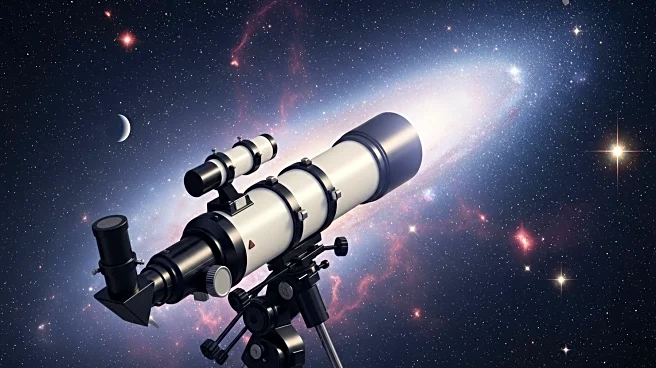What is the story about?
What's Happening?
NASA has reached a milestone with the discovery of 6,000 exoplanets, marking 30 years since the first exoplanet was discovered around a star similar to our Sun. This achievement is the result of decades of exploration driven by NASA space telescopes, which have expanded humanity's understanding of the universe. The discovery of exoplanets with diverse characteristics, including rocky planets and gas giants, provides insights into the conditions under which planets can form and the potential for life beyond Earth.
Why It's Important?
The discovery of 6,000 exoplanets represents a significant advancement in the field of astronomy and the search for life beyond Earth. Understanding the diversity of exoplanets helps scientists compare them to the planets in our solar system and explore the potential for habitable worlds. This milestone underscores the importance of continued investment in space exploration and the role of international collaboration in advancing scientific knowledge. It also highlights the need for public engagement with astronomy to foster a deeper appreciation for the universe.
What's Next?
NASA's upcoming missions, including the Nancy Grace Roman Space Telescope, will continue to explore exoplanets and expand our understanding of the universe. The discovery of new exoplanets may lead to further insights into the conditions necessary for life and the potential for habitable worlds. As technology advances, opportunities for direct imaging and study of exoplanets may increase, fostering continued exploration and scientific discovery.
Beyond the Headlines
The milestone of 6,000 exoplanets highlights the importance of international collaboration and investment in space exploration to advance scientific knowledge. It encourages reflection on the potential for life beyond Earth and the interconnectedness of celestial phenomena. The discovery of diverse exoplanets underscores the need for public awareness and engagement with astronomy to foster a deeper appreciation for the universe.















